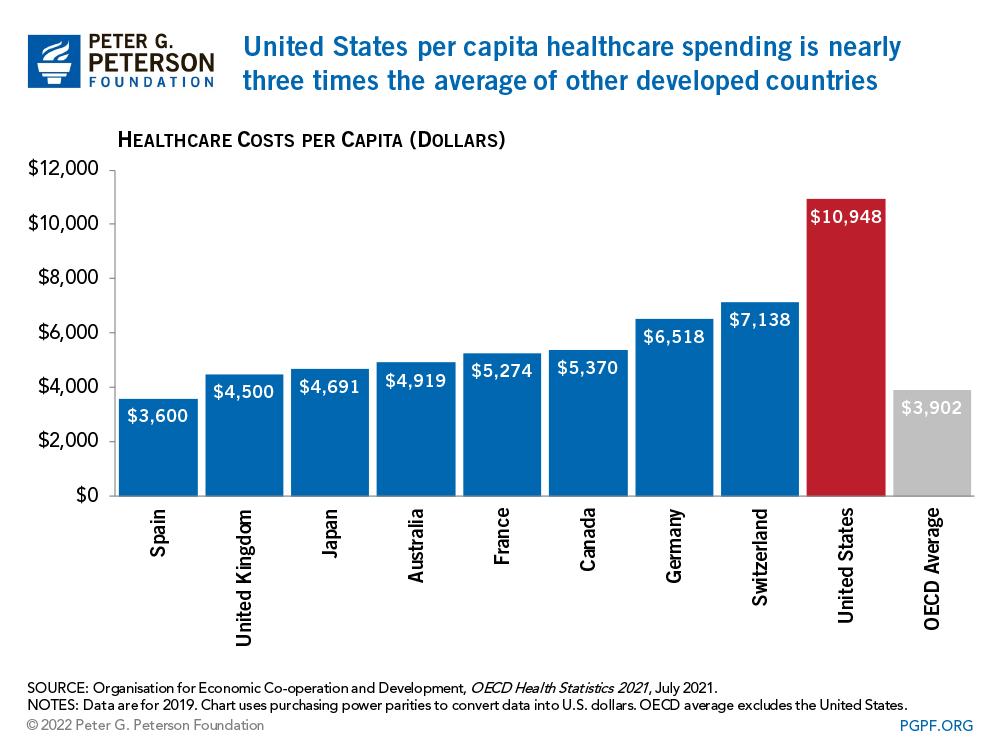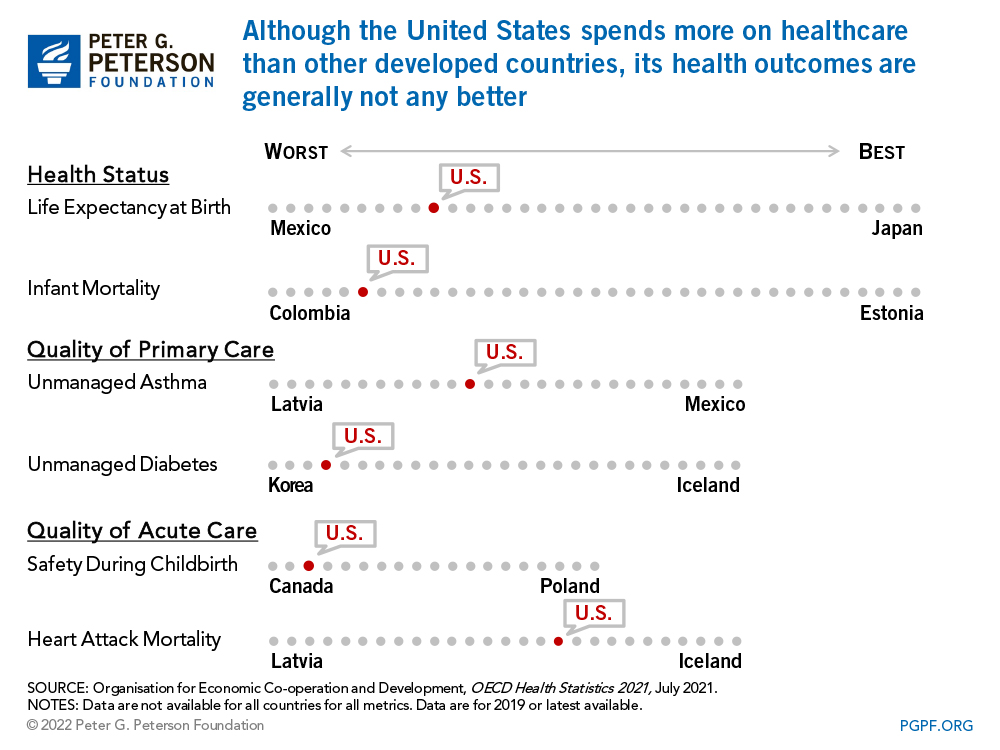U.S. Health Care – massive costs with under-performing outcomes….
……………………………………………………

Key Drivers of the National Debt – Health Care Costs
Excerpts:
One of the primary drivers of America’s long-term fiscal challenges is our inefficient healthcare system. Combined with the demographic realities of an aging population, America’s healthcare system leaves us with an unsustainable fiscal future. Not only will more Americans qualify for federal healthcare programs like Medicare in the coming years, but older people, on average, need more healthcare. Consequently, without reform, the federal budget will bear the cost of rapidly growing healthcare bills.

In 2020, the United States spent $4.1 trillion — or 20 percent of the national economy — on healthcare. On a per capita basis, our healthcare system is the most expensive among advanced nations. Yet, America’s health outcomes are generally no better than those of our peers, and in some cases are worse, including in areas like life expectancy, infant mortality, asthma, and diabetes.

Put simply, we are paying more than other countries, but we aren’t seeing better results. Healthcare experts have estimated that 25 percent of our total healthcare spending goes to unnecessary and wasteful services. Furthermore, healthcare spending is projected to keep rising — faster than inflation, wages, and the overall economy. Not only does the system result in health outcomes that are generally no better for patients, but its inefficiency also creates enormous challenges for the U.S. economy and federal government.
The primary reasons why our healthcare system underperforms is because the typical factors that fuel improvement and innovation in other industries are lacking in healthcare:
- Historically, consumers have not been cost sensitive because their employers and health plans often cover a large share of their costs and because they lack the information required to assess quality and cost.
- Employers and insurers often assume a passive role, accepting annual cost increases, and eventually pass those costs on to customers and employees.
- Providers generally operate under a fee-for-service model in which they are compensated based on the volume of their services, rather than the value of the care they provide.
- Improvements in technology often make healthcare more expensive.
Under this system, the demands and rewards for quality, efficiency, and price sensitivity are sharply reduced.
The growth in healthcare costs per person has slowed in the last few years, but it is uncertain how long this welcomed trend will continue. Despite the slowdown, the Centers for Medicare and Medicaid Services projects that total spending for healthcare will climb to 19 percent of GDP in 2025. According to CBO, spending on the major federal healthcare programs will rise from 5.7 percent of GDP in 2022 to 9.4 percent in 2051 — an increase of 64 percent.
___________________________________
It is time to decentralize the U.S. economy – and return to a citizen-centered health care system.
Putting citizens back in control of their access to primary health care services will lead to participating consumers taking a more active, cost sensitive role in their health care decisions. It will re-establish and strengthen patient-provider relationships, and reduce inefficiencies and costs.
The Leviticus 25 Plan is a dynamic economic initiative providing direct liquidity benefits for American families, while at the same time scaling back the role of government in managing and controlling the affairs of citizens. It is a comprehensive plan with long-term economic and social benefits for citizens and government.
The inspiration for this plan is based upon Biblical principles set forth in the Book of Leviticus, principles tendering direct economic liberties to the people.
The Leviticus 25 Plan – An Economic Acceleration Plan for America
$90,000 per U.S. citizen – Leviticus 25 Plan 2023 (3978 downloads)
